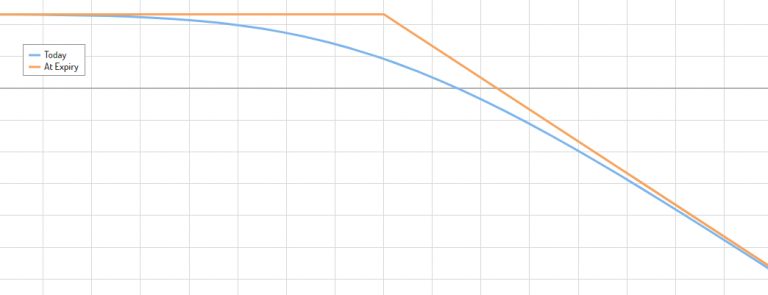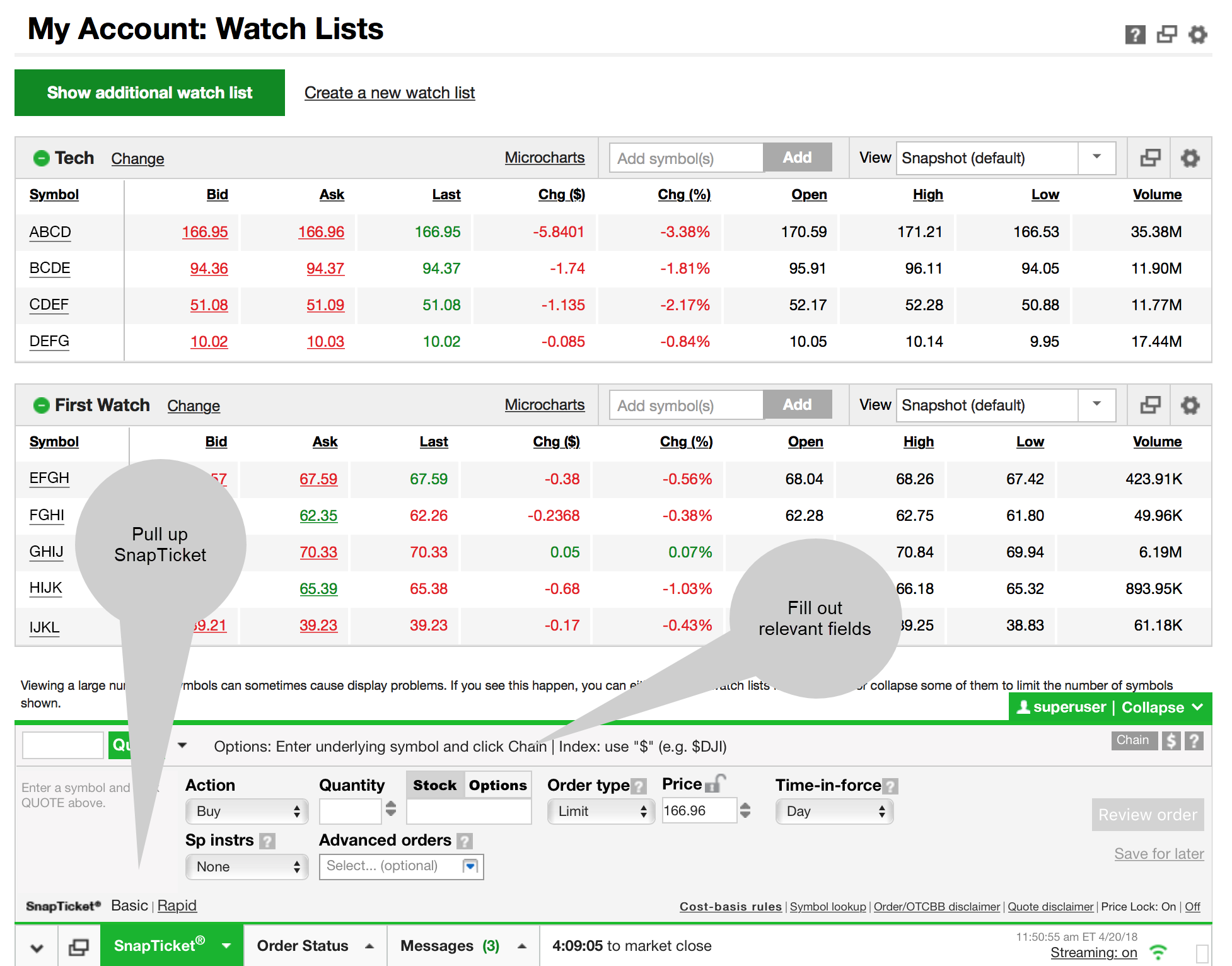Imagine a retirement nest egg that not only grows steadily but also offers the potential for explosive gains. This isn’t just a dream; it’s a reality within reach through option trading in your IRA. While traditional IRA investments typically involve stocks, bonds, and mutual funds, options offer a unique investment opportunity with the potential to maximize your retirement savings.

Image: tradeoptionswithme.com
Option trading, often considered the realm of experienced traders, is becoming increasingly accessible to individual investors. And with a self-directed IRA, even novice investors can explore this powerful investment strategy to potentially boost their retirement portfolio. This article will delve into the world of option trading within an IRA, unpacking the intricate world of options and illuminating the risks and rewards it presents.
Understanding the Fundamentals of Options
What are Options?
Options are financial contracts that give the buyer the right, but not the obligation, to buy or sell an underlying asset at a specific price on or before a specific date. The underlying asset can be anything from stocks and bonds to commodities and even currencies. There are two basic types of options:
- Call options: Give the holder the right to buy an underlying asset at a specific price (strike price). If the underlying asset’s price goes up, the call option holder can exercise their right to buy it at a lower price and sell it at the market price, making a profit.
- Put options: Give the holder the right to sell an underlying asset at a specific price (strike price). If the underlying asset’s price goes down, the put option holder can exercise their right to sell it at a higher price and buy it at the market price, making a profit.
Why Use Options in an IRA?
Option trading offers several advantages for IRA investors:
- Leverage: Options allow you to control a large position with a relatively small investment, potentially amplifying returns on your IRA contributions.
- Flexibility: Options provide a range of strategies, from hedging against potential losses in your portfolio to capturing profits during market volatility.
- Tax benefits: Profits generated from options trading in an IRA are tax-deferred, meaning you won’t owe taxes on them until you withdraw during retirement.
- Diversification: Options can serve as a diversifying tool within your IRA portfolio, mitigating risk by hedging against potential losses in traditional asset classes.

Image: hospitaldeespecialidades.com.sv
The Ins and Outs of Option Trading in an IRA
Self-Directed IRAs and Option Trading
To trade options within an IRA, you need a self-directed IRA, which allows you to invest in a wider range of assets beyond traditional stocks and bonds. These IRAs often provide more control over your investment strategy, enabling you to explore complex investment options like options trading.
Choosing a Broker for Option Trading
Before delving into option trading, you need to choose a suitable brokerage platform that supports self-directed IRAs and option trading capabilities. Not all brokers offer these features. Look for a platform with a user-friendly interface, advanced charting tools, real-time quotes, and robust educational resources.
Understanding the Risks of Option Trading
Option trading, while offering immense potential, comes with significant risks. You can lose more than your initial investment. Here are some key risks to be aware of:
- Time decay: Options have a limited lifespan and lose value as time passes. The closer the expiration date, the faster the time decay, and the more risk for the option holder.
- Volatility: Option prices are highly sensitive to price fluctuations in the underlying asset. Extreme market volatility can lead to rapid losses in option value.
- Liquidity: Not all options are highly liquid, meaning they might be difficult to buy or sell quickly at the desired price, potentially leading to losses.
Exploring Popular Option Trading Strategies
Option trading encompasses various strategies tailored to different investment goals and risk tolerance. Let’s explore some popular strategies that can be implemented within your IRA:
Covered Calls
Covered calls involve writing (selling) call options on shares you already own in your IRA. This generates premium income for you, while also lowering the potential upside of your stock holdings. If the stock price goes up, you’ll benefit from the stock price increase but will miss out on some potential profits as you’re obligated to sell the stock at the strike price if the option is exercised.
Cash-Secured Puts
Cash-secured puts involve selling (writing) put options, backed by sufficient cash in your IRA to cover the potential purchase of the underlying asset if the option is exercised. This strategy can generate premium income while also allowing you to buy the underlying asset at a discounted price if it falls below the strike price. This strategy can be a good choice for investors who are bullish on a specific stock and want to acquire it at a lower price.
Protective Puts
Protective puts involve buying put options on stocks you already own in your IRA. This strategy acts as an insurance policy against potential losses in your stock holdings. If the stock price falls below the strike price, the put option will cover the loss, mitigating your risk. This strategy is suitable for investors who want to protect their existing investments against potential downturns.
Navigating the Legal Landscape of Option Trading in an IRA
While option trading is a permissible investment within an IRA, it’s essential to be aware of the regulatory guidelines surrounding this strategy:
Prohibited Transactions
IRA rules prohibit what are called “prohibited transactions,” such as self-dealing, loans to yourself, and using IRA assets for personal gain. Trading options within your IRA must comply with these rules. If violated, it could result in penalties, including taxes and potential loss of tax-advantaged status. It’s crucial to choose a self-directed IRA custodian who is knowledgeable about option trading regulations and ensure your trading practices adhere to these guidelines.
Recordkeeping
Proper recordkeeping is crucial for option trading in your IRA. You need to maintain a detailed record of all trades, including dates, amounts, and relevant documentation. This recordkeeping will not only ensure compliance with IRS regulations but also assist in tracking your performance and making informed investment decisions.
Option Trading Ira
Final Thoughts: Embracing the Potential of Option Trading in Your IRA
Option trading within an IRA can be a powerful tool for maximizing your retirement savings, offering leverage, flexibility, and potential for enhanced returns. However, it requires a thorough understanding of the risks involved and proper execution. Remember, successful option trading requires careful research, a well-defined strategy, and disciplined risk management. Remember, this article is a guide, not financial advice; it’s always recommended to consult with a qualified financial advisor before making any investment decisions. As you embrace the potential of option trading in your IRA, be mindful, educate yourself, and invest wisely to create a robust and fulfilling retirement future.






